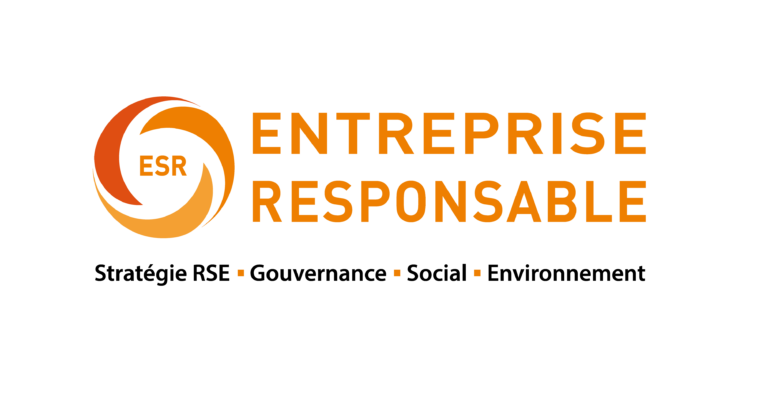Investment with impact: creating metrics to guarantee sustainability
For more than a decade and a half, the Luxembourg Finance Labelling Agency (LuxFLAG) has been developing labelling services to advance sustainability in the investment industry, in the Grand Duchy and worldwide. As the COP27 in Egypt confronts the increasingly urgent challenges of Climate Change, LuxFLAG has been helping delegates explore the critical role of impact investing in curbing global warming and the destruction of the natural environment.
As a recognised leader in the fields of sustainable finance and impact investing, LuxFLAG is an expert and influential voice in charting the financial sector’s growing involvement in decarbonisation and a broader embrace of human and natural capital. Hence its hosting on November 7 of a side event discussion on the sidelines of the United Nations Climate Change Conference in Sharm El-Sheikh on “Impact Investing: Key Policy and Market Challenges in an Evolving Regulatory Environment”.
The side event was designed to explore key market challenges faced by impact asset managers and investors and the way in which regulatory frameworks are evolving to encourage the transition to a more sustainable economy.
“LuxFLAG has a critical ongoing role to play in helping the industry navigate some of the current market challenges,” said CEO Isabelle Delas. “Our mission is twofold: to support and enable the financial sector’s sustainability transition at an international level, and to identify sustainable finance leaders and provide them with market credibility regarding their governance and internal processes.”
As an international labelling agency, LuxFLAG’s presence at COP27 highlighted its strong commitment to engage with and learn from new and existing partners active worldwide, showcasing for the first time at a United Nations Climate Change Conference the role of LuxFLAG and its partners towards more sustainable finance.
At its launch 16 years ago, the agency was already focused on impact investing; its first label was for microfinance, a sector of the investment industry pioneered by Luxembourg. Since then it has added three more impact labels covering the environment, climate finance and green bonds, all of them designed to instil confidence in investors that the investment product follows internationally recognised standards and uses their money to finance projects or organisations aligned with the particular classification.
The impact labels can be used to identify sustainable finance leaders pursuing a particular sustainable investment objective. LuxFLAG also awards three sustainability transition labels: ESG, ESG insurance product, and the most recently launched, ESG discretionary mandate.
LuxFLAG’ strict external review process for fund documentation and portfolio assets enable it to award impact labels to funds classified under articles 8 and 9 of the EU’ Sustainable Finance Disclosure Regulation, using eligibility criteria defined by an expert group for each label.
Said Ms. Delas: “At LuxFLAG we verify not only the product and its portfolio but also the institution and underlying processes, including the construction of the portfolio. The labelling procedure involves not only review of documentation but sampling and testing the portfolio to ensure the research process is systematic and has been conducted properly.”
For institutions such as Finance in Motion GmbH (FiM), a German impact asset manager and advisor based in Frankfurt with a branch in Luxembourg, LuxFLAG’s expertise is essential to provide investors with certainty and confidence that their portfolio will fulfil its sustainability mission, by providing the key metrics to verify performance.
“The role of LuxFLAG is important to give us access to that primary data, which in the end means we can show investors something we are confident in and that offers credibility,” said Finance in Motion’s Head of product development, Britta Bochert, at the COP27 side event.
Finance in Motion has so far invested €6 billion worldwide to generate positive change in emerging markets through impact-driven investment vehicles and solutions that contribute to achievement of the UN’ Sustainable Development Goals. It is particularly closely involved in South-East Europe, the Caucasus region and, increasingly, the Middle East and North Africa.
Ms. Bochert highlighted the need to improve the traceability of sustainability metrics in emerging markets, and to work on developing green taxonomies that assess environmental risk and create the framework for collection of data that can demonstrate a positive impact.
“In an ideal world we would have an end-to-end ESG system that aggregates information from all quarters,” she said. “Unfortunately, we are still far from that.” She says Finance in Motion is moving into “deep greening initiatives” to develop products as well as encouraging sustainability practices within emerging market institutions.
Ms. Eila Kreivi, Chief Sustainable Finance Advisor at the European Investment Bank (EIB), underlined the challenges of sourcing metrics that underpin the sustainability characteristics of impact investment, particularly in emerging markets. Multilateral institutions such as the EIB were the first adopters of impact investing, she said: “In the past we talked about [investment] volumes, whereas now we have to also talk about the impact of that money.”
Multilateral development banks face similar challenges to the private sector. “Data is one of the key issues,” Ms. Kreivi said. “Our regulators in Europe – the European Commission and legislators – say we need high-quality data verified by an auditor. This is a challenge even in Europe, and more so outside, where for example you may not have a body that rates buildings’ energy efficiency in a comparable way.”
Between 10% and 20% of the EIB’s work is carried out in emerging economies, she noted, pointing to its activities in Egypt itself, where it is supporting projects to build resilience to food shortages and price spikes by providing funding to increase storage capacity, improve distribution channels and boost irrigation through water efficiency measures.
Ms. Kreivi believes the EU’s green taxonomy is a huge step toward creating a level playing field that will enable one investment to be compared with another. A crucial next step will be learning how to apply the taxonomy outside the EU; the EIB has drawn up a 152-page report with recommendations for the European Commission, including considerations on how to develop international equivalence to facilitate global application.
“We now have these high standards established, so it will be faster than starting from scratch,” she said. “One way is to earmark funds to develop technical assistance to fill existing data gaps, create transitions between data sets, and build in emerging markets so the money stays locally. We must build up local systems and not rely only on international consultants.”
Ms. Kreivi stressed that creating robust labels for investments can help private funding penetrate areas where impact investment can bring about positive transformation. “For private and retail investors, labelling is very important, as someone else has done the work,” she said. “Public sector banks like us need to put the seed capital into different structures to support that environment.”
According to Professor Dirk Andreas Zetzsche, an expert in financial law (ADA Chair in Inclusive Finance) from the University of Luxembourg, regulating impact investment is essential to ensure fair competition and avert greenwashing, along with the ability to classify investments across different international jurisdictions.
“Harmonisation is key if we do not want the taxonomy to be a paper tiger,” said Prof. Zetzsche also argued that expertise must be developed rapidly.
He added: “How do two entities compete fairly for capital? We have to start by standardising the language and the regulations. If we don’t know what the ESG goal is, how can we invest in it?”
Sustainable investment requires transparent and clear standards to bring about the change required, Prof. Zetzsche concluded: “We have seen over the years that climate impact constitutes a systemic dimension; what is triggered today will have an impact 15 years from now. No single investment product can make a change – it is a system and must be regulated in that way.”
The livestream of the event is available at the link below:
https://www.youtube.com/watch?v=-fnGt035KWI




